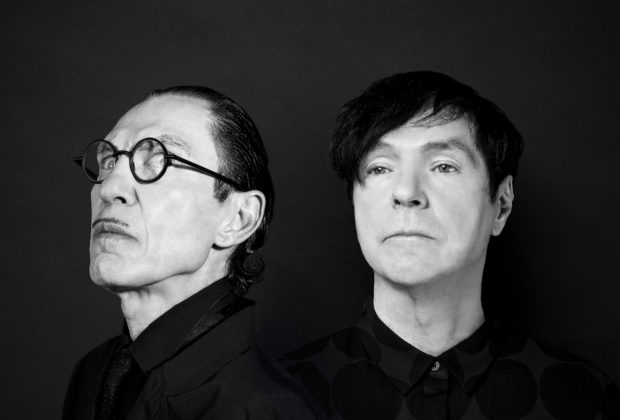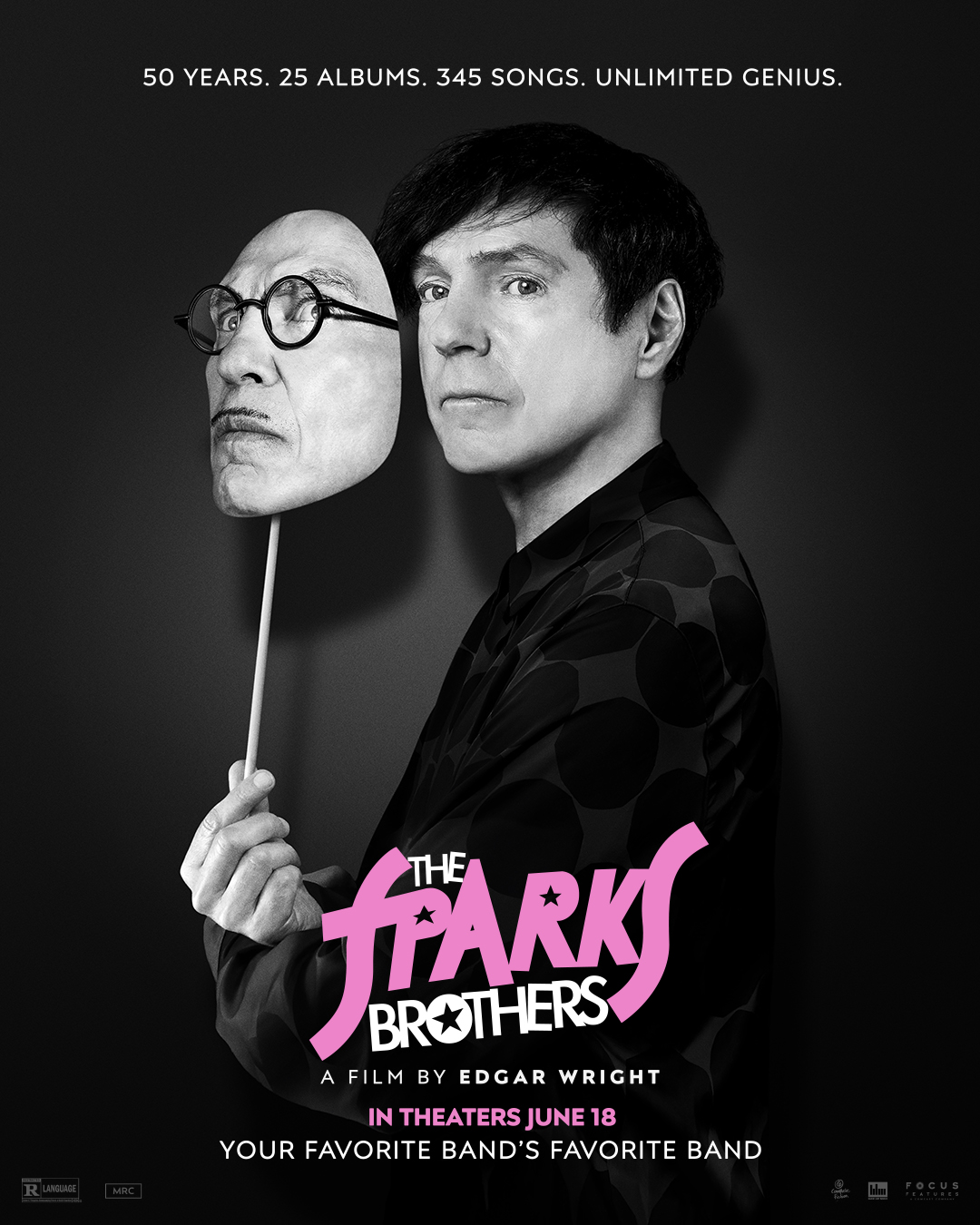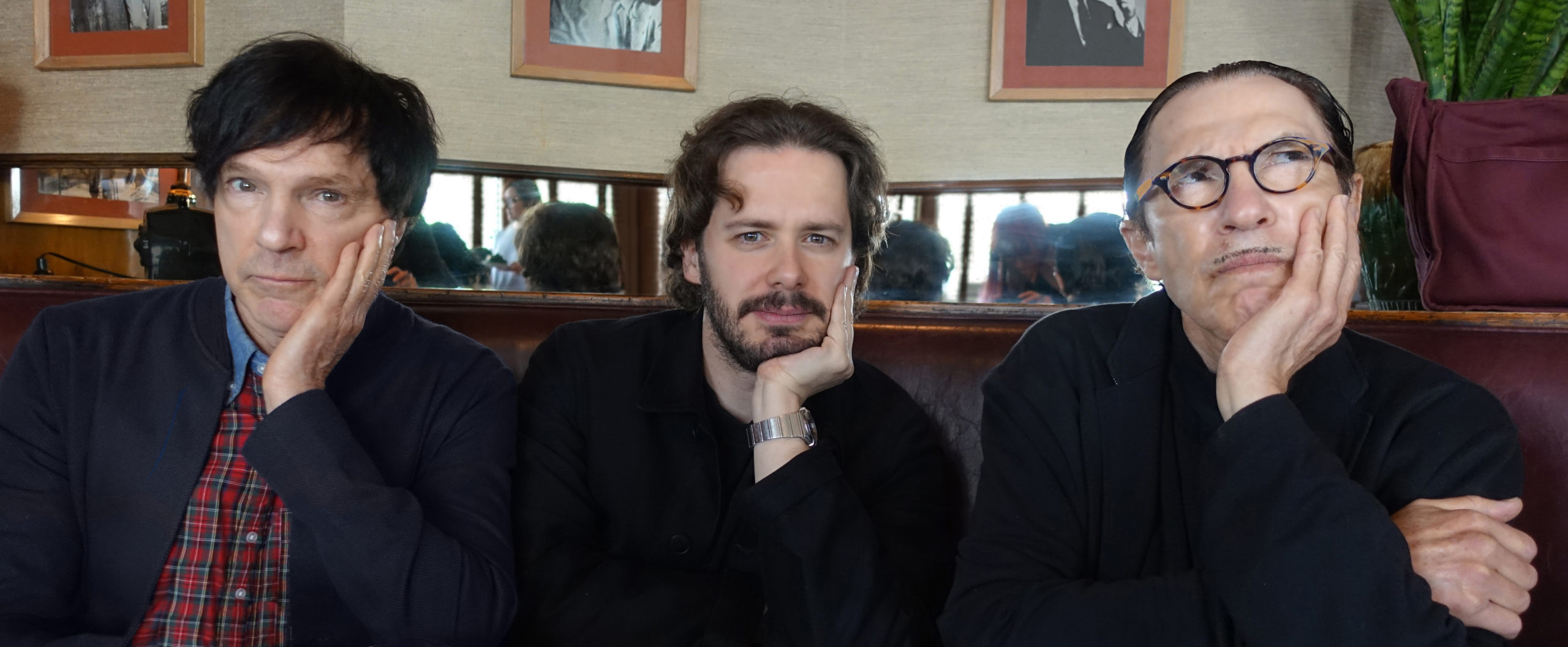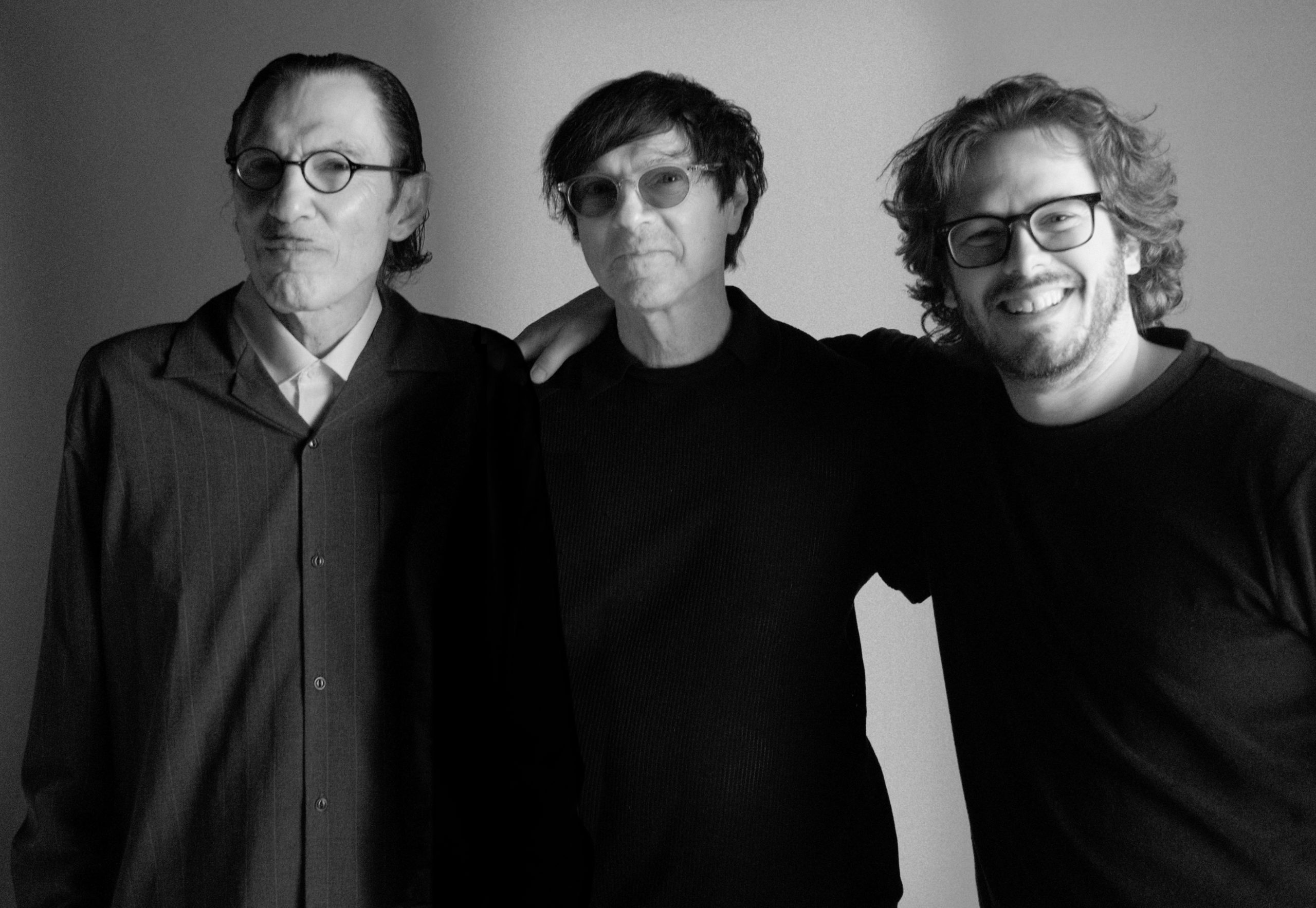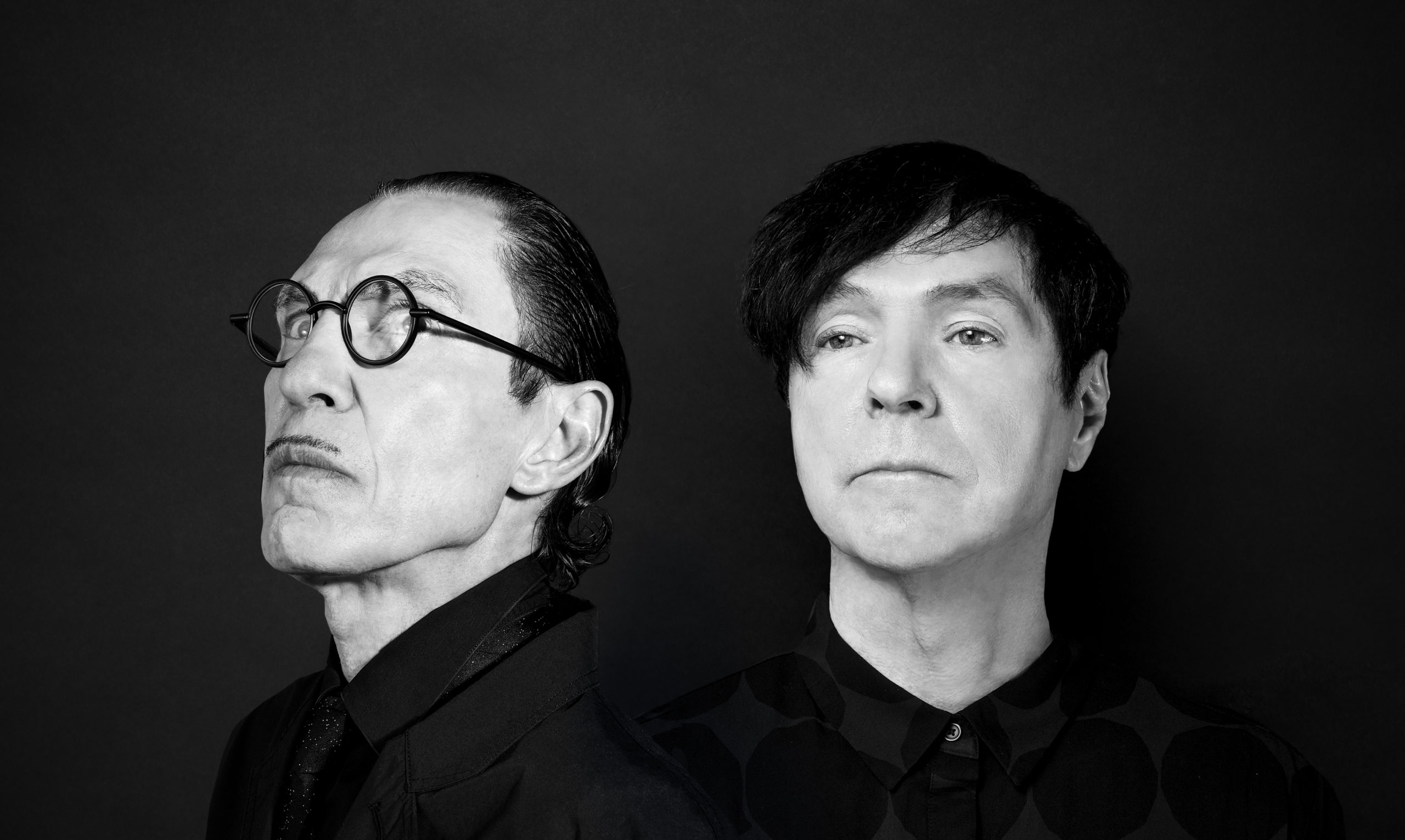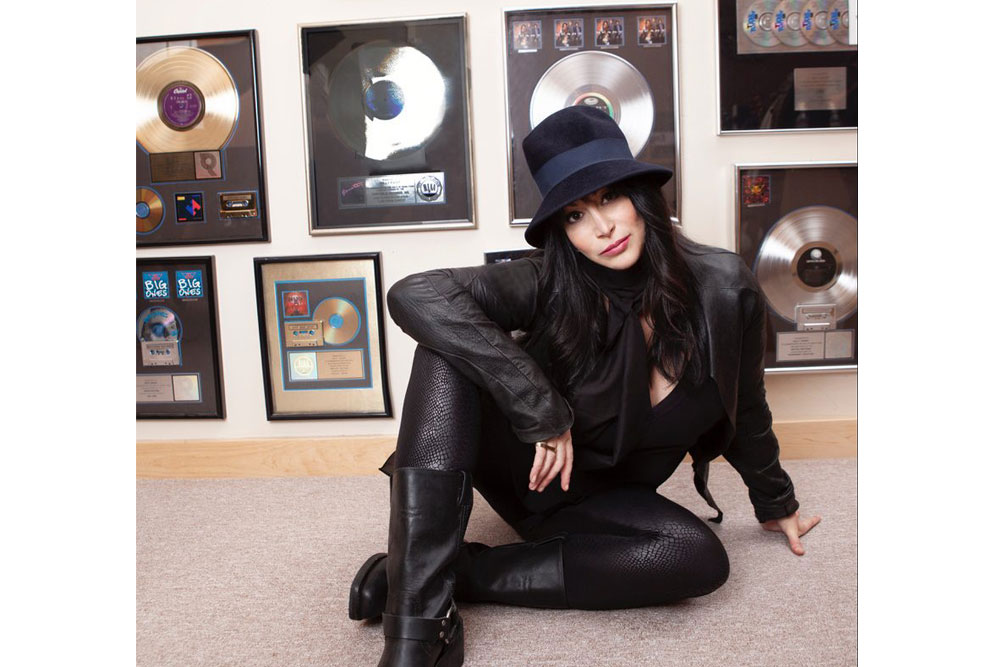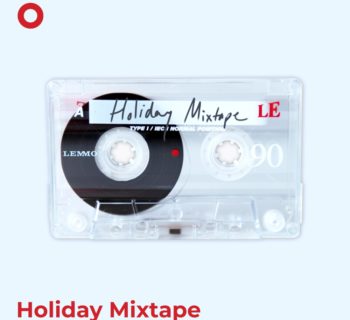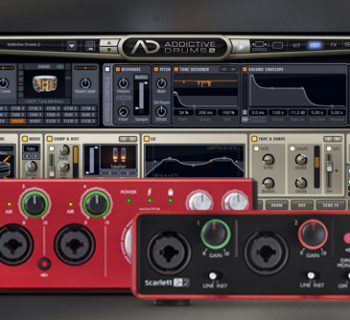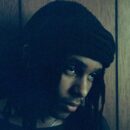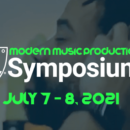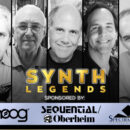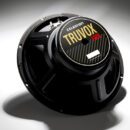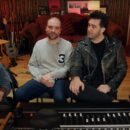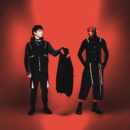How can one rock-pop band be successful, underrated, and hugely influential all at the same time?
Fan boy and acclaimed director/producer Edgar Wright’s debut documentary THE SPARKS BROTHERS, is now in theatrical release, distributed by Focus Features nationally and Universal worldwide.
It incorporates screen commentary from Todd Rundgren, Earle Mankey, Flea, Jane Wiedlin, Beck, Jack Antonoff, Amy Sherman-Palladino, Gary Stewart, Tosh Berman, Jason Schwartzman, Neil Gaiman, Thurston Moore, Jane Weidlin, Giorgio Moroder, members of Duran Duran, Erasure and Franz Ferdinand, and others, takes audiences on a musical odyssey through five weird and wonderful decades with brothers/bandmates Ron (keyboardist/principal songwriter) and Russell Mael (vocalist) celebrating their recorded catalog and inspiring shows.
Wright, who gave us Baby Driver and Scott Pilgrim vs. the World, tells the story of Sparks in a candid and archive-rich narrative full of stop motion techniques, reenactments and animation.
Displayed is a joyous tribute love letter about a determined duo in the early seventies leaving their hometown Los Angeles California to garner commercial acceptance in London, England.
Television and film clips coupled with concert footage in The Sparks Brothers reinforce Russell’s keen understanding that his stage wardrobe was a character of expression, enhancing their sonic art to those in attendance.
“The documentary by Edgar is beautiful and full of information, yet keeps the mystery alive as well,” underscores writer/poet and book publisher Tosh Berman.
“A true Sparks fan doesn't want to know everything, they just want the music and their image seen and heard. To be a fan (and I'm one) is to be part of a small but growing large social group.
“When Edgar approached me to be interviewed for the film, it felt very much like home in front of his camera and presence. Sparks' fans understand each other, and now that an audience can see this film (as well as Annette) we have the ability to share a common passion, which is Ron Mael and Russell Mael, and more importantly, their art.”
I really enjoyed The Sparks Brothers. Director/producer Wright captured a remarkable saga long overdue for examination, dissection and discussion.
The Mael brothers are the sons of Jewish immigrants from the Austrian and Russian empire. I lived in Culver City, a West Los Angeles community, where Ron was born. Russel arrived later in Santa Monica.
The Mael family resided in Culver City. Father Meyer Mael was a graphic designer and caricaturist for The Hollywood-Citizen News. The boys then relocated with their widowed mother, a librarian Miriam Mael (nee’ Moskowitz) to Pacific Palisades.
Ron studied Film and Graphic Arts at UCLA, Russel took Theater Arts and Filmmaking courses at the university. During 1970-1973 I’d see Ron and/or Russell monthly at the Country Art Museum for a foreign film festival or The Toho La Brea movie house which screened French New Wave motion pictures with subtitles.
The Maels just penned the original story, based on their script, for the movie Annette, and supplied the musical score and songs, which stars Adam Driver and Marion Cotillard. Director is Leos Carax. Annette will open the 2021 Cannes Film Festival on Tuesday July 6th.
Noted photographer/writer Heather Harris provides a unique view of Ron and Russell from fifty years ago which is quite illuminating.
“The Sparks Brothers = The Marx Brothers, geddit? Like most of the UCLA community of artists, musicians, filmmakers and entertainment journalists of the late 1960s/early 70s, we all knew who one another were, despite the student body numbering some 40,000 souls at the time,” recalls Heather.
“We all liked the same wide nets cast of pop cultural happenings and would see one another at their gigs and assorted exhibits, film premieres etc., which is why I can verify the filmic reference of the initial name change of the band Halfnelson.
“I'll let someone else explain ‘the UCLA Mafia's’ future successes in the entertainment world, but what follows is its origin. Halfnelson and Christopher Milk were the two house rock bands of UCLA in that same era, the latter being fronted by my future better half Mr. Twister who was also a widely published music photographer then and containing amongst others Rolling Stone and Creem music reviewer John Mendelssohn of assorted notorieties.
“We all started our respective creative careers while still in university, partly because the ambitious entertainment sections of The UCLA Bruin Icon and Index (of which I was editor my last years at UCLA) put one in direct contact with all the record companies and movie studios of the era, who were more than happy to welcome loquacious students to freebie gigs and film previews to expound happily and wordily about their product. They even provided us with travel junkets!
“An Icon or Index review, good or bad, was after all a free advertisement to 40,000 young consumers,” she explains. “This made all parties, students, musicians, artists and company publicists alike very happy indeed in this all win/win scenario.
“We all liked everything new and cool no matter what medium, usually to incorporate magpie-like into our own effusive creations. Which is why it wasn't unusual to encounter Sparks' Ron and Russell Mael at a rare live concert by Greek avant garde composer Iannis Xanakis in West Hollywood. Xanakis was one of the very few serious musicians to incorporate the then spankin' new synthesizer (Moog or ARP) into his compositions. Since synthesizers were monophonic at the time despite their inevitably multi-tracked use in studios, the brothers probably shared a similar curiosity to see how this could work live.
“After the show I introduced myself as a fellow UCLA student who had seen them play live and I asked when they would do so next,” remembers Harris.
“They were cordial and replied that the very next day they were leaving Los Angeles for England to further their music careers, which for once did in fact spell fame and fortune, ‘This Town Ain't Big Enough For Both Of Us,’ etc. success ongoing up until today. If this isn't like encountering Secretariat right up at the starting gate of the Kentucky Derby, then at least to continue the equine analogy, it's like encountering Cinderella stepping into her pumpkin coach drawn by six white horses and about to go to the ball. Life-changingness ensued, at least for Sparks...”
“Twice this weekend I watched and loved Edgar Wright’s The Sparks Brothers,” marvels singer/tunesmith Greg Franco, bandleader of Man’s Body.
“I heard my songwriter self say, ‘I loved the documentary, but they never really delved as deeply into the songwriting aspect as I had hoped.’ But isn’t that like revealing secret recipe of your aunt’s favorite dishes?
“I know Ron Mael has a music and film director’s brain and Russell Mael has that delicious falsetto, and movie star charm. Perfect! That’s all we really we really need to know about them as we spin their records. They are human and they have a human story, and that alone is very interesting, but what will be remembered is their complete 50 year devotion to the artistry of Sparks.
“This last weekend, being able to see this film was such a gift,” emphasizes Franco. “To be greeted back to normality after a pandemic by these strange comedic, lovable, sublime, cartoonish gents in this confounding band, to hear their songs was a blessing.
“Sparks are straight out of a Max Sennett short, and they are from our fairest hometown Hollywood no less, and now they are senior citizens. It is said that older rockers should end their service to this youthful art form, and if you are not receiving awards or attaining continuing chart success, than you become irrelevant, and unworthy of support from any record label.
“Sparks have learned to operate for five decades under this pressure,” Franco underlines. “Changing record labels many times, and still thriving, maintaining their integrity, and not retire, all the while still staying in the driver’s seat of their career.
“Sparks is incredible, never macho, not censored, original, always well crafted, irreverent, dynamic and captivating. They present a fine tuned machine of their own creation. The music and presentation is always in sharp focus. It is curated in scope and flair, attaining high art rock and rock pop status. They also keep a sense of timelessness. Their cryptic lyrics and heady concepts will alienate some, but welcome others, which separates fans in their devotion, but that is very much their intention. They became a solidly popular Gen X band for an American MTV audience, yet they also they are cherished by an English baby boomer audience who heard them growing up in the 1970's.
“How in the world,” summarizes Greg, “did they accomplish this genius chess move? Having devoted fans in two separate countries, and in two different musical eras? It is just what they do. More importantly they are still here, which is really their most masterful and magical move of all.”
In the November 2, 1974 issue of Melody Maker, Justin Pierce and I conducted an interview with Ron and Russell Mael.
I subsequently accompanied photographer Richard Creamer to his 1975 cover photo shoot for the Sparks’ LP Indescreet.
With The Sparks Brothers out and generating well-deserved stellar reviews, I thought it was appropriate to re-visit our 1974 journalistic rendezvous.
Sparks: Hometown Heroes At Last
Interview Melody Maker, 2 November 1974.
It was a typical day in Los Angeles, hot and smoggy. 18-year-old Jeff exclaimed with glee clutching his autographed Sparks album, "They went to my high school. I'm glad they made it over there."
Inside the Continental Hyatt House on Sunset Blvd., Russell and Ron Mael were about to start our interview.
"We've always had that from over there thing thrown at the band. In England we're from over there, and in Los Angeles, well, we're not from here anymore. It's nice to be back for a bit. The Hyatt House is our home in LA now, the coffee shop our kitchen;" Russell ponders.
It was only a couple of years ago that one could see the earlier Mael brother incarnation, Halfnelson, playing local venues like the Whisky A Go Go or Pacific Palisades High School, for less than a pound.
The band was in Los Angeles for a promotional visit to coincide with their upcoming Island release, Propaganda. During their week stay, the band did the three major network TV shows; In Concert, Midnight Special and Rock Concert. After the tapings, which went extremely well, the Mael brothers reflected on their past, present and future endeavours.
The most interesting thing that the Mael boys have found since returning is how past acquaintances accept their rise to stardom.
"It was bizarre. Some people that were friends are in tune to what's happened to us. For them its 'Wow,' we always used to talk about things like Melody Maker and let's see who's on the cover.
"Then there are those who aren't even aware of what's happened to Ron and myself. They aren't really involved with rock music per se. It's kinda like, 'Hi, it's good to see you again. What's been happening with you?' For them it's hard to get involved with our past lives, 'How's your car?' All of our time is the band now, and everything is geared with that in mind.
"Now there are a lot of people who want to say they were with us from the beginning. ‘We always liked Sparks,' kind of thing. There were about six that I can remember," laughs Russell.
"We enjoy everything we ever recorded. We like people hearing the old songs of ours. I feel for the Beach Boys who are going through a more serious problem of facing re-issues and greatest hit repackages by their old record company.
"They had an earlier life that was separate from what they do now, and like us, their old product stands up as well as their more recent excursions," says Ron.
Russell and Ron began to reflect what they would have done if they didn't find success. "Before the band was a success, I always wanted to play baseball. I wanted to play centerfield.
"Then the next thing was being in a band. I studied graphic design at school. But it wasn't the same as being in a band. I probably would have fallen back on graphics, and been miserable."
Then younger brother Russell pondered. "I don't know what I'd probably, have done. Maybe become a teacher. I went to UCLA for a while.
"Over in the States people are full time students, trying to find something along the way, not knowing what they are going to do with life. That’s what we were doing.
"In England that type of person doesn't exist. At 16 you leave school and go to work at Woolworths. It's quite a bit different."
Many of the themes and messages found in the lyrics of Ron Mael are akin to Ray Davies.
"I agree that we both share a mutual liking for a childlike stance. I see Ray, however, being the epitome of the English viewpoint. Our viewpoint, if anything, leans towards an American one. Also remember, that we were very influenced by the English invasion; Stones, Who, Kinks."
Ron agreed that the lyrics of Sparks lean toward the underdog.
"I think that's very interesting. 'Underdog', never really thought of it that way, but quite valid. Rock over the last 10 years has been very he-man oriented. I like it where it's the little guy or the underdog presenting a conflict to what rock really stands for. Rock is always bravado. I like using the little guy approach. I do everything in a much too serious sense. I like to go at it in a half serious way to bring out the point sometimes. I don't write funny songs, I like things where it's really blurred, and you can't tell if it's funny or not funny. I think mystery is a good thing."
The sound of Sparks is also intriguing and imaginative. They blend early production techniques and tricks that worked well to make the records of the 50s and 60s so successful. The band relies on dynamics and rhythmic changes to carry their tunes rather than depend on one basic melody line.
"Our sound is different," observes the younger Mael. "We are really excited by what we're doing. We like working in the format of commercial rock, three minute songs.'
"You get a chance to see what you can get away with in the given album structure. We spend a lot of time on things. We're song oriented as opposed from working from an image. When an album is done, the slate is clean and it's time to start again."
Ron and Russell then talked about their new album, Propaganda, which they previewed on their TV appearances.
"Our new single is different from our last two. It's a bit slower, and it's now a rock band playing with greater use of the studio. Singles a lot of times are musically stronger than albums. There's no room for padding in a three minute framework.
"The title song, 'Propaganda', is an acapella tune with Russell's voice overdubbed 30 times. It's being sung by a boyfriend of a kinda Tokyo-Rose figure, saying, don't listen to her propaganda. I don't want any competition."
Sparks have also succeeded in creating a stylistic niche for themselves by presenting a use of falsetto vocals.
"The style is dictated by how Ron writes the songs. Most are written on the keyboard.
"My vocals just come out of my throat. I don't really make a conscious effort to sing certain tones or ranges. Evidently, it's worked quite well. Artistic freedom is one of our strengths. We are doing exactly what we would be doing in the ideal situation. On the first couple of albums, there was some thought of studio time as the only limitation. Our new album is good. We won't come out with anything unless we get excited behind it."
Talking about the future, Ron and Russell revealed their plans for the November tour of England.
"It will differ from previous Sparks’ tours a little. The last one was geared at a maximum tempo. This time there will be songs that aren't quite as accessible. They are from our new LP. This time we feel we can take a few more chances.
"We don't believe in theatrics in an extended sense of the word. There won't be any back drops or props. Rock theatre evolves around the people in the band and their equipment. The live performance is a visual thing, it makes up for the difficulty of transcribing sound to the live stage," offers Ron.
He was a bit evasive about his image, on the stage or off it. Chaplin-like, showcased in tweed, he responded: "Before this I always tried to be the archetypal rock star, but failed. This is in keeping with what I am, something that isn't anything, to do with what is traditionally rock.
"It's not a phase. The phase was trying to be a rock star. That's over. Which doesn't answer your question after all, does it?"
Harvey Kubernik is the author of 20 books, including Canyon Of Dreams: The Magic And The Music Of Laurel Canyon and Turn Up The Radio! Rock, Pop and Roll In Los Angeles 1956-1972.
Sterling/Barnes and Noble in 2018 published Harvey and Kenneth Kubernik’s The Story Of The Band: From Big Pink To The Last Waltz. For October 2021 the duo has written a multi-narrative volume on Jimi Hendrix: Voodoo Child for the publisher.
Otherworld Cottage Industries in 2020 published Harvey’s book, Docs That Rock, Music That Matters, featuring interviews with D.A. Pennebaker, Chris Hegedus, Albert Maysles, Murray Lerner, Morgan Neville, Curtis Hanson, Michael Lindsay-Hogg, Andrew Loog Oldham, Eddie Kramer, Dick Clark, Ray Manzarek, John Densmore, Robby Krieger, Christopher M. Allport, Travis Pike, Allan Arkush, and David Leaf, among others.
Kubernik’s writings are in book anthologies, most notably The Rolling Stone Book Of The Beats and Drinking With Bukowski.
Harvey wrote the liner note booklets to the CD re-releases of Carole King’s Tapestry, Allen Ginsberg’s Kaddish, Elvis Presley The ’68 Comeback Special and the Ramones’ End of the Century. Kubernik penned the liner notes to the November 2021 National Record Store Day Drops Lou Adler-produced release, A Combination of the Two, by Big Brother & the Holding Company featuring Janis Joplin culled from the 1967 Monterey International Pop Festival. Harvey is writing and assembling a manuscript Sisters In Song.
During 2020 Harvey Kubernik served as a Consultant on the 2-part documentary television series Laurel Canyon: A Place in Time directed by Alison Ellwood that premiered on EPIX television channel in 2020.

